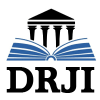Research Article
Issue Editorial Board

Assoc. Prof. Dr. Emrah Utku Gökçe is an academic specialised in Political Science Methodology and International Relations Theories. He completed his PhD at Yıldız Technical University and continues his academic career at Bandırma Onyedi Eylül University. His research interests include Turkish foreign policy, international relations theories, scientific methods and qualitative research techniques. He has undertaken various tasks in TUBITAK projects both as an executive and as a trainer.

He completed his undergraduate, graduate and doctoral studies at Istanbul University in the field of Labour Economics and Industrial Relations. As a second undergraduate degree, she graduated from Istanbul University, Department of Social Work. She also completed the 1130-hour Family Counselling certificate programme at Istanbul Gedik University and received the title of Family Counsellor.
She completed her master's thesis titled ‘Social Services for Social Assistance and Disasters’ and her doctoral thesis titled ‘The Effect of Social Work Practices in the Workplace on Employees’ Job Satisfaction and Organisational Commitment'.
She worked as a research assistant at Istanbul Sabahattin Zaim University, Department of Social Work between 2013-2019, and as an Assistant Professor at Bandırma Onyedi Eylül University Vocational School of Health Services, Department of Social Work and Counselling between 2019-2022. Since 2022, he has been working as an Associate Professor at Bandırma Onyedi Eylül University Faculty of Health Sciences, Department of Social Work.
He has articles and book chapters published in national and international refereed journals within the framework of his fields of study.
Aim & Scope
When social facts turn into social problems, they fall within the scope of social policy. In this context, the Journal of Social Policy, a blind peer-reviewed journal, aims at both publishing researches on social policy areas and making them available to scientists by examining social problems and solutions.
Turkish Journal of Social Policy is published twice a year. Articles can be published in Turkish or English languages.
This journal is an Open Access journal.
Social Policy, Social Work, Sociology, Family Studies, Economics and Public Administration are accepted to the Turkish Journal of Social Policy.
Author Guidelines
Ethical Principles and Publication Policy
Ethical Principles and Publication Policy
Turkish Journal of Social Policy takes into account ethical rules as the requirements of the process in the formation and delivery of science and scientific knowledge and aims to contribute to the field of scientific development. In order to ensure this sensitivity, it is important that primarily authors, referees and editors fulfil their responsibilities in line with the determined ethical principles. At this point, Turkish Journal of Social Policy strongly states that the following duties and responsibilities should be taken into account within the framework of the Committee on Publication Ethics (COPE) and its principles.
1. Ethical Responsibilities of Authors
Author(s) should make sure that the submitted work is original.
Responsibilities including the spelling and format rules of the journal should be submitted to the journal completely and regularly.
Authors who want to withdraw manuscripts submitted for publication from the journal due to delay, correction or any other reason should report this to the editor.
Conflicts of interest for the article sent to the journal should be indicated and the reason should be explained.
In the event that the author (s) notices a mistake or error in their published work, at the early view or evaluation stage, the journal editor or publisher has an obligation to cooperate with the editor in informing, correcting or withdrawing.
Changes such as adding authors, changing the order of authors and removing authors should not be made or offered in the article that is in the evaluation process.
Article authors submitted to the journal should make sure that they comply with these specified rules. All ethical rules concerning the author (s) must be followed completely.
Unethical Behaviors
a) Plagiarism: Presenting others’ ideas, methods, data, applications, writing, figures and works partially or completely as one’s own work without proper source reference.
b) Forgery: Producing data that is not supported by research; regulating or changing presented or published works through the insertion of false data; reporting or publishing such works, or holding incomplete research to be completed.
c) Distortion: Distorting research records and obtained data; pretending to use methods, devices and materials that were not actually used; evaluating data unsuitable to the research itself;, distorting data or results in order to adapt them to established theories or hypotheses; distorting or altering research results to promote or confirm the interests of the sponsoring person or foundation.
d) Repeated publishing: Submitting more than one work of research consisting of the same results in order to obtain an associate professorship, examination review, or academic promotion.
e) Slicing: Destroying the integrity of the results of research by slicing it improperly and submitting fragments as specific assessments to gain academic promotion.
f) Unfair authorship: Adding persons who have not actively contributed to the production of the article or failing to add persons who actually did contribute; altering the arrangement of authors’ names improperly and unjustifiably; subtracting the names of actively contributing writers during the publication process or subsequent printings; or adding the name of an author who did not contribute as a way of gaining prestige.
2. Responsibilities of Editors
Turkish Journal of Social Policy editors should work consciously and with self-sacrifice about the responsibility of the journal's author, referee, and technical studies for the publishing process.
It should adopt an approach that is impartial to the articles regarding the publication and is based on the conformity of scientific information to ethical principles. The journal should follow a path in accordance with ethical rules to ensure the quality and development of the publication life.
Relations with the reader
The responsible editors of the journal should prioritize the originality and quality of the information in terms of reaching the scientific information required by the reader and should take into account the requests and evaluations of the reader.
Relations with authors
Editors' duties and responsibilities towards authors are as follows:
Editors, authors and referees should try to carry out the working process in the most appropriate way for the articles submitted to the journal.
It should inform about whether the articles sent to the journal will be published or not.
Unless there are serious problems with the publication policy of the journal, every article submitted should be pre-checked by the editor.
Regarding the evaluation of the articles, the opinions of the referees should be brought to the fore. However, depending on the magnitude of the problems regarding the journal's publication rules, the editorial board is the decision-maker in terms of publication.
The editor should pay attention to the blind refereeing practice between the author and the referee.
Authors should be informed about the process.
Relations with referees
Editors' duties and responsibilities towards referees are as follows:
Referees should be appointed who has the potential to evaluate articles and have expertise in the field.
The editors' own articles submitted to the journal are evaluated by two independent referees, not from the editorial group.
He must ensure that the referees make objective and objective evaluations.
The confusion that may be experienced between the author and the referee regarding the arrangements that the referees expect from the authors should be prevented.
Due to the practice of blind refereeing, the personal information of the referees should not be reported to the author in any way.
Based on the journal's timing principle, reminders should be made to the referees for the evaluation.
Unscrupulous and unscientific evaluations should prevent.
Relations with the Editorial Board
Editors;
Editorial board members should ensure that they evaluate the work impartially and independently.
The editorial board should send the works appropriate to the field of expertise of the members for evaluation.
There should be a process-based relationship with the editorial board.
The recommendations of the editorial board should be taken into account in order to ensure the publication quality of the journal.
Besides, for Editors;
It is obliged to ensure the protection of human and animal rights in the evaluated studies. It is responsible for refusing to work in cases where there is no ethical committee approval for the subjects used in the studies and permissions for experimental research.
Errors and deficiencies that may occur after the publication phase should be fully edited by the editors.
Editors must protect the intellectual property rights of all published articles.
Complaints from the author, referee, or readers towards the executive process, referee or author should be considered and evaluated.
Editors should try to complete the process independently and impartially throughout the relationship between referees and authors.
3. Ethical Responsibilities of the Referees
Since the Turkish Journal of Social Policy carries out the referee evaluation process based on the principle of blind refereeing, it is expected that the author will have access to the referee information and will not reflect his personal information in the referee's evaluation form.
Journal editors are responsible for reporting referee evaluations to the author. In this respect, there is no mutual relationship between the referee and the author.
In this process, referee comments on evaluation forms and full texts should be submitted to the author through the editor. Besides;
At least two referees are appointed for the articles submitted to the journal.
The main criterion in determining the referees is their expertise on the subject of the article.
If one of the two referees expresses a negative opinion, the article is directed to a third referee or the editor to make the final decision.
Evaluations should be impartial, objective.
Referees should not have conflicts of interest with research, authors, and/or research funders.
Articles reviewed by the referees should not be intended to be misused by the referee.
The referees' evaluations should not reflect an ideological opinion and should not contain any offensive or controversial style towards the author.
Referees should deliver the article to the journal in accordance with the timing of the journal.
4. Publisher's Ethical Responsibilities
The Board of Directors of the Journal acts with the awareness of the following ethical responsibilities:
Turkish Journal of Social Policy does not charge any fee for the publication of the articles.
In this regard, editors take responsibility for the journal objectively and are effective as decision-makers in the evaluation process without any gain.
In addition, the database of the journal should be accessible on the internet.
5. Plagiarism Detection Policy
Turkish Journal of Social Policydemands a plagiarism report from the articles to be sent to the journal.
6. Requests, Complaints and Criticisms
Requests from readers, writers and referees are open and agreed to complaints and criticisms. Please contact us at toplumsalpolitikadergi@gmail.com if you encounter any issues other than the ethical frameworks for the quality, development and progress of the journal.
Price Policy
Hiçbir ad altında yazar veya kurumundan ücret alınmaz.
Indexes
Journal Boards
Editor in Chief

He completed his undergraduate, graduate and doctoral studies at Istanbul University in the field of Labour Economics and Industrial Relations. As a second undergraduate degree, she graduated from Istanbul University, Department of Social Work. She also completed the 1130-hour Family Counselling certificate programme at Istanbul Gedik University and received the title of Family Counsellor.
She completed her master's thesis titled ‘Social Services for Social Assistance and Disasters’ and her doctoral thesis titled ‘The Effect of Social Work Practices in the Workplace on Employees’ Job Satisfaction and Organisational Commitment'.
She worked as a research assistant at Istanbul Sabahattin Zaim University, Department of Social Work between 2013-2019, and as an Assistant Professor at Bandırma Onyedi Eylül University Vocational School of Health Services, Department of Social Work and Counselling between 2019-2022. Since 2022, he has been working as an Associate Professor at Bandırma Onyedi Eylül University Faculty of Health Sciences, Department of Social Work.
He has articles and book chapters published in national and international refereed journals within the framework of his fields of study.
Publication Board

Dr. Lucky Nugroho is an experienced practitioner in Islamic banking and a lecturer at several private universities in Indonesia. With over 20 years of expertise in the banking industry and a Ph.D. in Islamic Economics and Finance from Trisakti University, he has significantly contributed to the academic and professional spheres. He holds advanced degrees in microfinance from Solvay Brussels School and sustainable local economic development from Erasmus University Rotterdam. Dr. Nugroho has authored numerous publications on Islamic finance, banking, and microfinance, reflecting his dedication to advancing knowledge in these fields




Assoc. Prof. Dr. Fatih Yaman received his undergraduate degrees from Ondokuz Mayıs University Theology Department, Anadolu University Sociology Department and Marmara University Journalism Department. After completing his master's and doctorate at Istanbul University Institute of Social Sciences, Yaman conducted research in his field as a “visiting researcher” in the departments of Political Science at the University of Utah in the USA (2006-2007), Catholic Theology at the University of Tübingen in Germany (2010) and Social Sciences and Cultural Studies at Justus Liebig Giessen University (2012). He is the author of Islam and Civil Society in Europe (2017) and Migration and Society (2019). He continues his studies on migration policies, civil society, social change, media, identity and radicalization as a faculty member at Istanbul Medeniyet University.


Mehmet Fatih Aysan is a Professor of Sociology at Marmara University and the director of the Center for Population and Social Policies, Institute of Population and Social Research. He received his Ph.D. from the University of Western Ontario (2011) and taught sociology at the same university (2010-2012). He previously worked as a faculty member in the Department of Sociology (2012-2020) and as the director of the Graduate School of Humanities and Social Sciences (2016-2020) at İstanbul Şehir University. His sociological interests are rooted at the intersection of demography, family, sociology of work, and social policy. His study centers on how changes in demographics, labor markets, and social policies combine to influence the welfare of societies. His research projects were supported by the TÜBA, EU, ERC, IDRC, and TÜBİTAK. Dr. Aysan’s works are published in edited books and peer-reviewed journals such as Routledge, Palgrave, Springer, Population & Development Review, The Canadian Journal of Sociology, and Emerging Markets & Finance.

Gloria Manyeruke was born in Zimbabwe in 1991. She has 2 sisters and a brother. she was born and raised in Masvingo. She attended Chikato Primary School before proceeding to Zimuto High School. After high school, in 2010 she pursued her undergraduate studies at the University of Zimbabwe (BSc Psychology). In 2014 she moved to KKTC for her graduate studies, firstly Master in General Psychology then PhD in Psychological Counselling and Guidance in 2016.
In 2018 she began to work at Near East University as a research assistant and she continues her career as an assistant professor at the same institution.


Brisejda (Zenuni) Ramaj has completed the studies for Finance-Accounting year 2009, the second cycle of Master's studies in Accounting and Auditing year 2013 as and the third cycle in which he obtained the Scientific Degree "Doctor" in Accounting in 2018. She received participation in National and International Conferences with references as first author and second author, has also published articles in international research and scientific journals. Besides work scientific researcher has experience in teaching and training in Erasmus+. She participated in projects developed at faculty level. Since January 2017 until December 2022, he has been a full-time staff member full at the University "Ismail Qemali" Vlora, Faculty of Economics, Department of Finance and Accounting and is engaged in the teaching process in the field of accounting in the subjects:
Basic Principles of Accounting, Financial Accounting, Advanced Accounting, Cost Accounting, Management Accounting, Applied Accounting, Auditing and Security Notes and Consulting.
Year 2010-2014 work experience in the public sector as financial and 2015-2019 work experience in the sector private. In the academic year 2013-2014 as an external lecturer at the University "Ismail Qemali" Vlora. that since December 2020, after successfully completing the professional ability exams, she holds the title professional 'Chartered Accountant'. She was also part of the Internal Evaluation Group in
Bachelor in Accounting study program, January 2020.
Effective staff from December 2022 at the Department of Accounting, Faculty of Economics, University of Tirana.
Field Editors


Assoc. Prof. Dr. Emrah Utku Gökçe is an academic specialised in Political Science Methodology and International Relations Theories. He completed his PhD at Yıldız Technical University and continues his academic career at Bandırma Onyedi Eylül University. His research interests include Turkish foreign policy, international relations theories, scientific methods and qualitative research techniques. He has undertaken various tasks in TUBITAK projects both as an executive and as a trainer.
English and French Language Editor

Graduating in 1999 from Galatasaray High School, Mustafa Islamoğlu graduated from the Department of Economics at Paris 1 Panthéon-Sorbonne University in 2006. He completed his PhD at Istanbul University Institute of Social Sciences with his thesis titled ‘Rationality in Adam Smith’. He is currently a lecturer at Bandırma Onyedi Eylül University, Department of Economics and head of the Department of Economic History.









